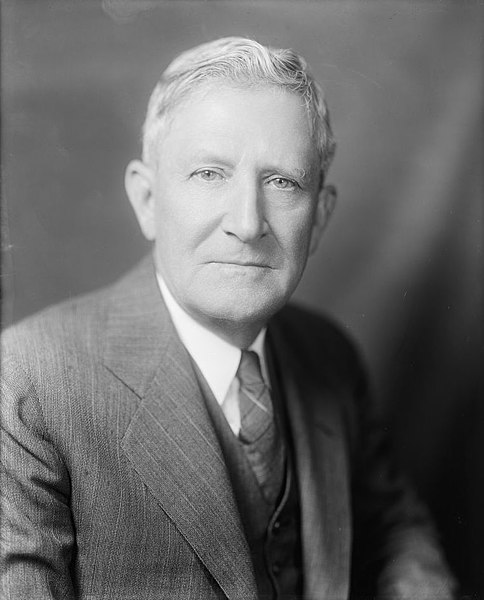The Blaine Act, formally titled Joint Resolution Proposing the Twenty-First Amendment to the United States Constitution, is a joint resolution adopted by the United States Congress on February 20, 1933, initiating repeal of the 18th Amendment to the United States Constitution, which established Prohibition in the United States. Repeal was finalized when the 21st Amendment to the Constitution was ratified by the required minimum number of states on December 5, 1933.
Senator Hiram Bingham
Senator John J. Blaine. A "wet" Republican, he was elected chair of a Judiciary Committee subcomittee, which he used to promote the modification or repeal of Prohibition and its enabling legislation.
Speaker John Nance Garner attempted to force the House to repeal the 18th Amendment on the first day of the lame-duck second session. House members balked.
Senator Morris Sheppard of Texas led the eight-hour filibuster against the Blaine Act
Twenty-first Amendment to the United States Constitution
The Twenty-first Amendment to the United States Constitution repealed the Eighteenth Amendment to the United States Constitution, which had mandated nationwide prohibition on alcohol. The Twenty-first Amendment was proposed by the 72nd Congress on February 20, 1933, and was ratified by the requisite number of states on December 5, 1933. It is unique among the 27 amendments of the U.S. Constitution for being the only one to repeal a prior amendment, as well as being the only amendment to have been ratified by state ratifying conventions.
The Twenty-first Amendment in the National Archives





